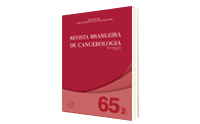National Health Card: Assessment of Reliability of Oncology Encoded Databases
DOI:
https://doi.org/10.32635/2176-9745.RBC.2019v65n2.337Keywords:
Confidentiality, Information Systems, Unified Health System, Databases as TopicAbstract
Introduction: The National Health Card (CNS) was created to be an instrument of individual identification of the citizen. In the databases provided by DATASUS, the variable CNS is encoded. Objective: To verify if the encoded variable of the CNS in public databases provided by DATASUS can be used as a unique identifier of the patient. Method: It was conducted a deterministic linkage between the High Complexity Procedures in Oncology (Apac-onco) database of chemotherapy and radiotherapy, provided by DATASUS, and the databases of an oncology reference hospital located in the State of Rio de Janeiro, considering data from 2010 to 2016. Results: In the database of chemotherapy, 2.83% of the CNSs had more than one encoding and, in radiotherapy’s, 0.55% similarly. Consequently, the utilization of the CNS encoded exceeded the count of 45.5% of the 77 CID of the chemotherapy database and 20.2% of the 84 CID of radiotherapy. Conclusion: In the current format, the CNS encoded does not ensure a univocal identification of SUS patients, making it difficult to follow up the procedures, to estimate the treatment costs, identify barriers to access and plan the health care system organization.





